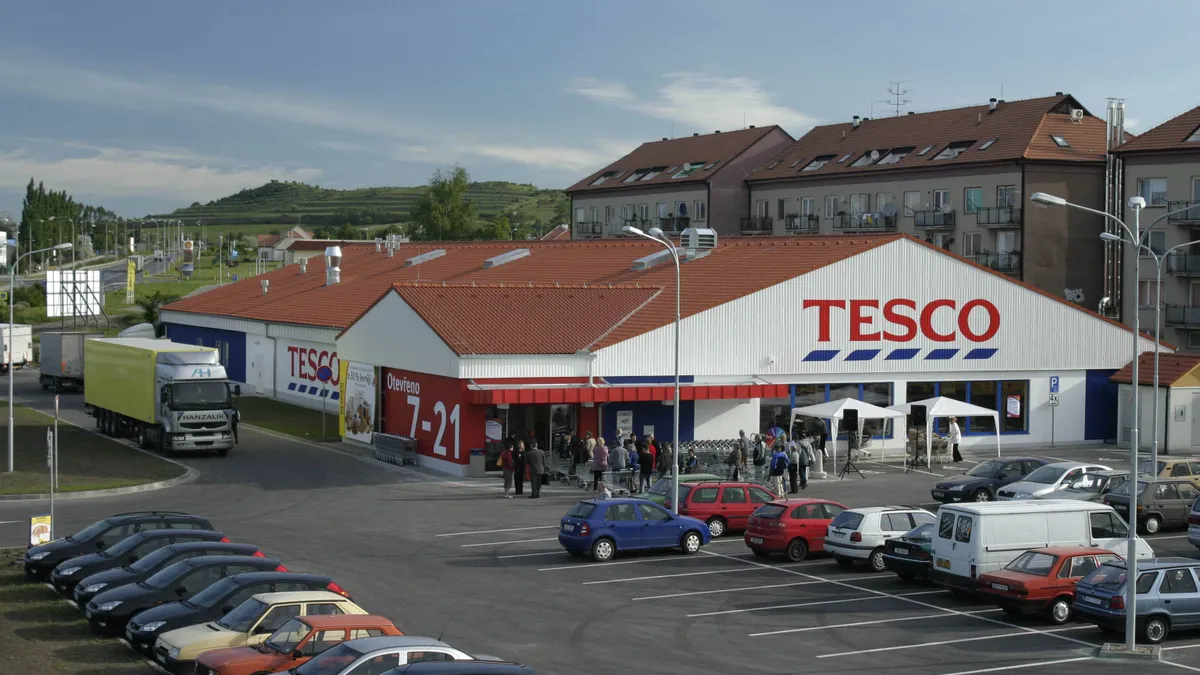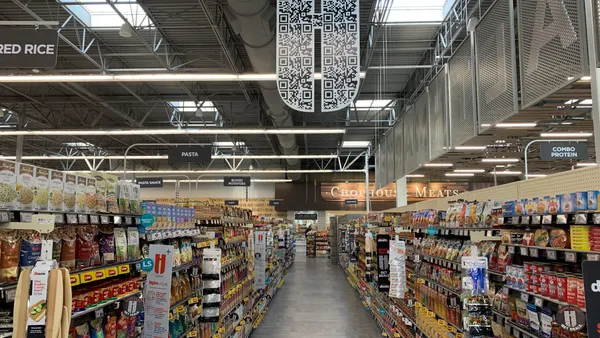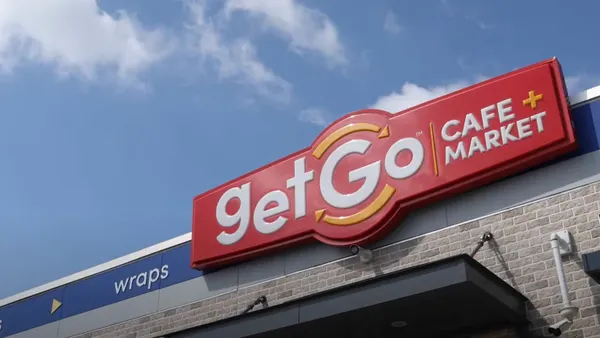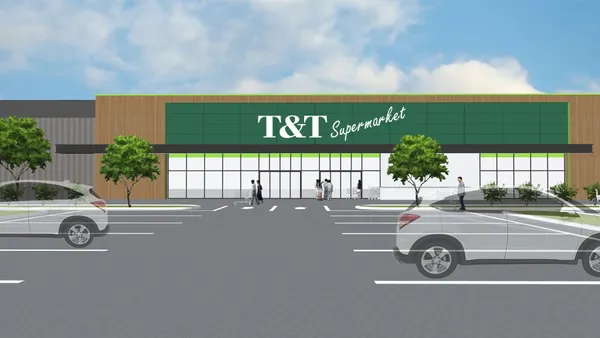Dive Brief:
- British supermarket Tesco is cutting 4,500 jobs from its 153 Metro stores, according to reports. The company says the change will improve efficiency for the format.
- Tesco's Metro stores are medium-sized stores that were intended to be used as a weekly shop, but lately Tesco said it has seen customers visit Metro for daily shopping trips.
- The retailer also plans to reduce operating hours at 134 of its Express convenience stores. Tesco cut thousands of jobs earlier this year after removing fresh delis, meat and fish from some of its larger stores.
Dive Insight:
Massive job cuts do not bode well for Tesco's Metro format, especially with intense competition from Aldi and Lidl. But according to Reuters, the retailer says it found a quicker way to stock shelves that requires less manpower in the store. This includes shuttling more goods straight from loading docks to shelves, and training workers to work across departments.
In the U.K., the food and grocery convenience store market is expected to grow 22% by 2022, outpacing the overall food and grocery market in the U.K. Convenience stores are essentially turning into mini supermarkets that offer grab-and-go options, milk and bread and more fresh foods. In the U.S., convenience store sales saw their best year yet in 2018, according to the National Association of Convenience Stores' annual state of the industry report, with foodservice accounting for nearly 23% of total sales.
This has resulted in the addition of more smaller format and convenience stores. In the U.K., Aldi and Lidl are piloting small urban stores. Soon after Tesco opened its Metro stores, Sainsbury's rolled out Sainsbury’s Central, which serves the same commuter and town center audience. Sainsbury's also began trialing checkout-free technology in its small-format Local chain this year, following in the footsteps of Amazon Go in the U.S.
U.S. grocers haven't experienced the same level of disruption from discount operators and convenience stores. That could change, however, as Aldi and Lidl continue to expand and c-stores upgrade their food selections. Chains like 7-Eleven have moved into foodservice and home delivery, while companies like Foxtrot Market, Wawa and Choice Market are creating hybrid stores that combine elevated grocery offerings and on-the-go convenience.
Tesco is trying to steer its conventional grocery business into a leaner, more nimble operation. In addition to cuts in its service departments, the company has rolled out a discount format called Jack's that now has ten locations. It's also piloting a checkout-free convenience store at an Express store just north of London.













